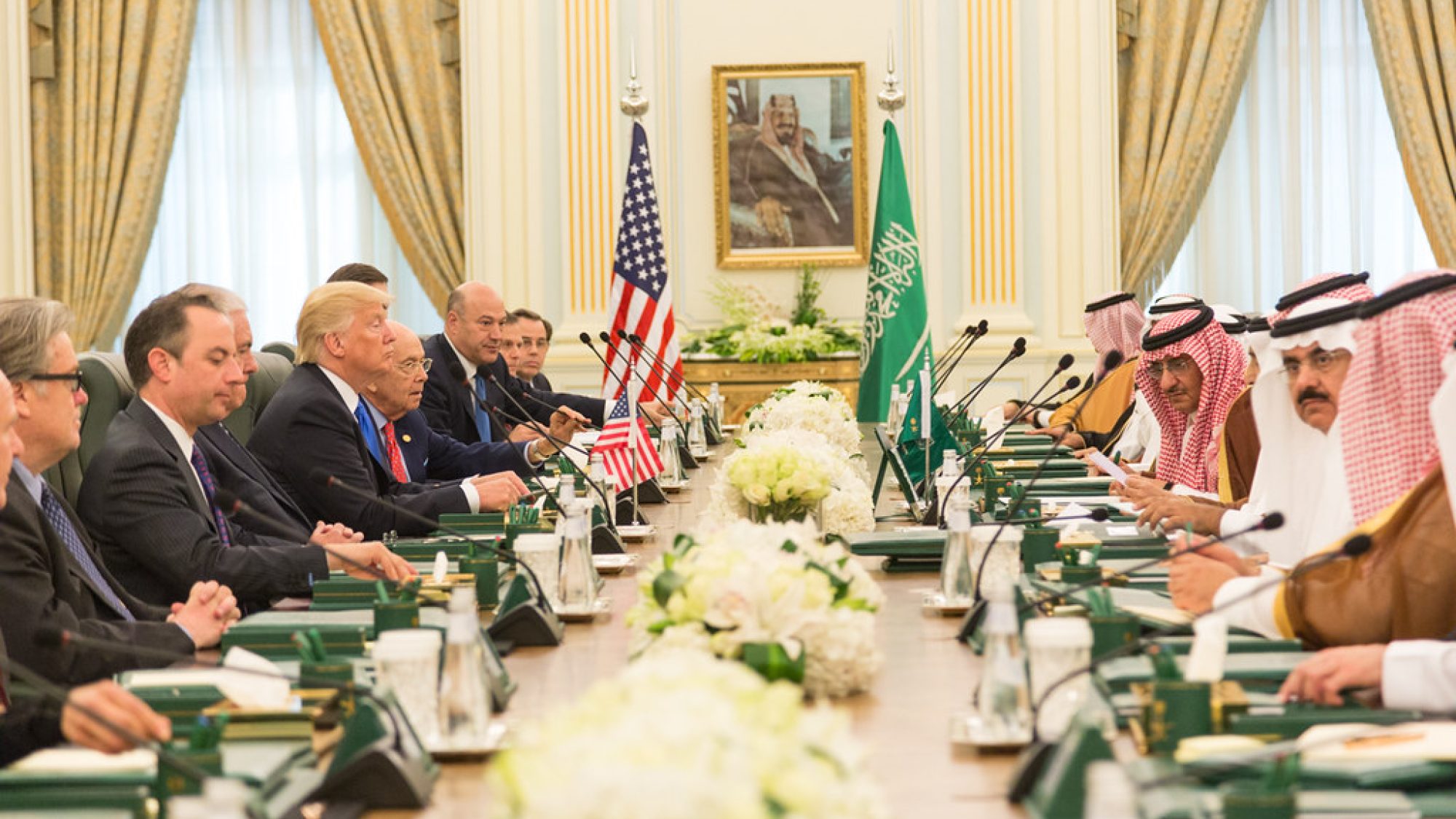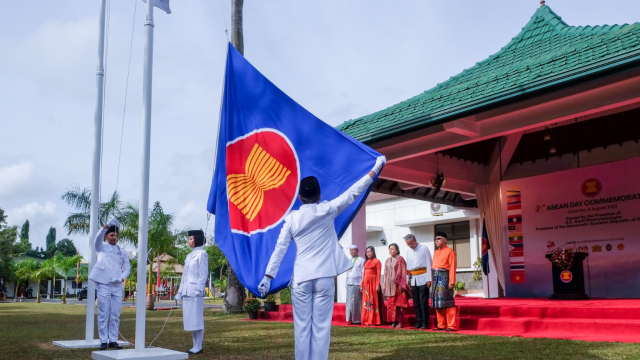
Title: Rethinking U.S. Foreign Policy for the Middle East and North Africa
The United States has adopted a security-centric approach in its policy toward the Middle East and North Africa (MENA). Various administrations have provided unconditional support to the region’s leaders despite poor human rights records. Violence and instability continue to surge in the region due to unaddressed political, economic, and human rights grievances. This has hampered US efforts to achieve its security goals in a sustainable way in the region. It is in the United States’ interest to rethink its policy for the region and prioritize human rights as a national security imperative.
Traditionally, the United States has approached the Middle East and North Africa (MENA) region from a security lens. It pursues a set of core interests: countering terrorism and stopping nuclear proliferation; safeguarding the security of the region; and unconditionally supporting strategic allies and partners. To achieve these goals, the United States has invested in the military power of some of the region’s governments to counter threats that range from expansionism on the part of foreign and regional powers to the expansion of terrorist networks.
Previous administrations, both Republican and Democratic, have acknowledged that promoting human rights and democratic reforms in foreign partners serves to bolster and protect US interests. The United States inconsistently employs a variety of tools to that end in the MENA region. Occasionally, it has conditioned military and economic collaboration on respect for human rights. However, US administrations have failed to maintain a consistent approach toward prioritizing the human rights agenda in foreign policy.
In the wake of the Arab uprisings in 2011, former President Barack Obama advanced a human rights and reform-centric policy. He noted in his speech on US policy in the Middle East and North Africa in 2011 that “the policy of the United States [is] to promote reform across the region and to support transitions to democracy.” along with pursuing national security priorities in the region. Former President Donald J. Trump abandoned these pretenses and departed from a human rights and reform policy in the Middle East. He emboldened repressive regimes, risking further destabilization. President Biden, in contrast, has again prioritized human rights in his foreign policy.
Despite efforts to shift the focus to the protection of human rights in the region, the US approach towards the Middle East remains the same. Egypt is a classic example. It has been receiving economic and military aid from the United States since 1947, totaling more than $79 billion. Egypt has been always perceived as a key strategic ally of the United States in the Middle East and continues to be seen as a peace broker and a balancing power in the region. The allocation of foreign aid has been influenced by both the domestic and international political, economic, and security environment. Little consideration has been paid to Egypt’s human rights record. As aid flows in, the country’s autocratic system continues to reinforce social and economic inequalities and perpetuate cycles of political violence and government repression that further entrench authoritarianism. This empowers the political elite, including the military establishment, while depriving citizens of rights and freedoms. In the name of countering terrorism, a key issue that determines US aid to Egypt, the Egyptian regime has carried out arrests of political opponents in an apparent attempt to consolidate its rule and power. With as many as 60,000 political prisoners already in Egyptian jails, the detention of human rights advocates and opposition leaders continues. In contrast to the previous authoritarian regimes in Egypt that allowed some space for civil society to operate (though primarily just to calm international criticism), Egyptian President Abdul Fatah el-Sisi seems determined to silence dissenting voices and erode space for civic engagement. These actions could drag the country into cycles of violence and regional and international insecurity.
In the aftermath of the recent strikes on Gaza by Israel in May 2021, during a meeting with Abdul Fatah el-Sisi, U.S. Secretary of State Anthony Blinken discussed the protection of human rights for US citizens residing in Egypt. He did not raise the issue of Egypt’s repression against its own people. The Biden administration has further requested $1.3 billion in foreign military financing (FMF) for Egypt, despite non-governmental organizations urging against the waiving of human rights conditions on military aid to Egypt. In the end, the State Department released $200 million in military aid to Egypt in September 2021 despite these concerns.
Another example is Saudi Arabia. US-Saudi relations are based on mutual interests: countering terrorism and the expansion of Iranian influence. Saudi Arabia was the world’s largest importer of arms between 2015-2019, mostly from the United States. Those arms have been used in its war on the Houthis in Yemen that has brought about the world’s worst humanitarian crisis. Furthermore, the Saudi government continues to extraterritorially target human rights defenders and misuse counterterrorism measures to silence dissidents and critical voices of the regime. President Biden, while on the campaign trail, vowed to reset the relationship with Saudi Arabia and put human rights issues at the center of US policy. However, the Biden administration failed to sanction Saudi Crown Prince Mohammad bin Salman when US intelligence clearly showed that the Crown Prince “approved” the decision to murder the Saudi journalist Jamal Khashoggi. The administration is expected to approve further weapons sales to Saudi Arabia that include weapons used to arm helicopters, ground-to-ground missiles, small arms, and electronics equipment. Air-to-ground offensive weapons are not part of the deal in an attempt to prevent future killing of Yemeni civilians, including the many child casualties.
Conflicts continue to surge in the Middle East, and terrorist networks continue to expand and gain strongholds in many areas in the region. As a result, “[t]he United States devotes an overwhelming share of foreign military financing to just three countries—Israel, Egypt, and Jordan.” These three countries received 81% of the $6 billion of military aid spent by the United States in 2019. This costly engagement has neither advanced U.S. national security interests nor helped the region achieve stability. Unaddressed economic, political, and human rights grievances create a fertile ground for radical groups to attract recruits. For example, the Iraqi Security Forces, trained and supported by the United States, have committed grave human rights abuses with near total impunity. As the trust between the Iraqi government and its own people weakened, ISIS was able to gain ground, resulting in the group’s 2014 takeover of Mosul.
Regional conflicts have hampered U.S. national security interests as crises spill over borders. Continuing to supply military and economic aid without addressing the root causes of the region’s instability will continue to fuel the region’s conflicts and endless cycles of violence. It is time for the United States to rethink its foreign policy in the Middle East and North Africa and understand that respect for human rights and the achievement of security are not conflicting but rather mutually reinforcing imperatives. It is in the interest of the United States to adopt a policy in the Middle East and North Africa that addresses security and human rights concerns. This starts by bringing military and civilian agencies together to shape an integrated approach that supports the development of strong institutions that uphold the rule of law and protect human rights in partner countries. Security and economic interests should be considered on equal footing with human rights priorities; this requires agencies to cooperate and work together to build joint country strategies instead of becoming siloed. Effective coordination among the Department of Defense, Department of State, and U.S. Agency for International Development (USAID) that better aligns approaches to human rights, sustainable development. and security can address the root causes of instability in the region. A consistent emphasis on human rights in U.S. agencies’ bilateral and multilateral dialogues is a good place to start.
…
Lana Baydas, Ph.D. is a human rights expert. She has worked as both an academic and a practitioner in the fields of human rights and gender equality for the last twenty years, holding posts at headquarters and in field operations with the United Nations, international non-governmental organizations, and think tanks. Dr. Baydas has extensive experience in the Middle East and North Africa (MENA) region.
Image Credit: The White House is marked with CC PDM 1.0
More News

In this article, I historicize the Gaza war from the joint vantage point of Israeli Jews and Palestinian Arabs through the perspective of collective violence. The Israeli Jewish and the…

Many assessments of the reasons for Russia’s invasion of Ukraine have emphasized Vladimir Putin’s individual characteristics, such as his early career as a KGB officer, imperial ambitions towards Ukraine, or…

Southeast Asian nations such as Malaysia, the Philippines, and Vietnam, but also ASEAN, are hedging toward both China and the United States. However, China’s assertiveness in the South China Sea…